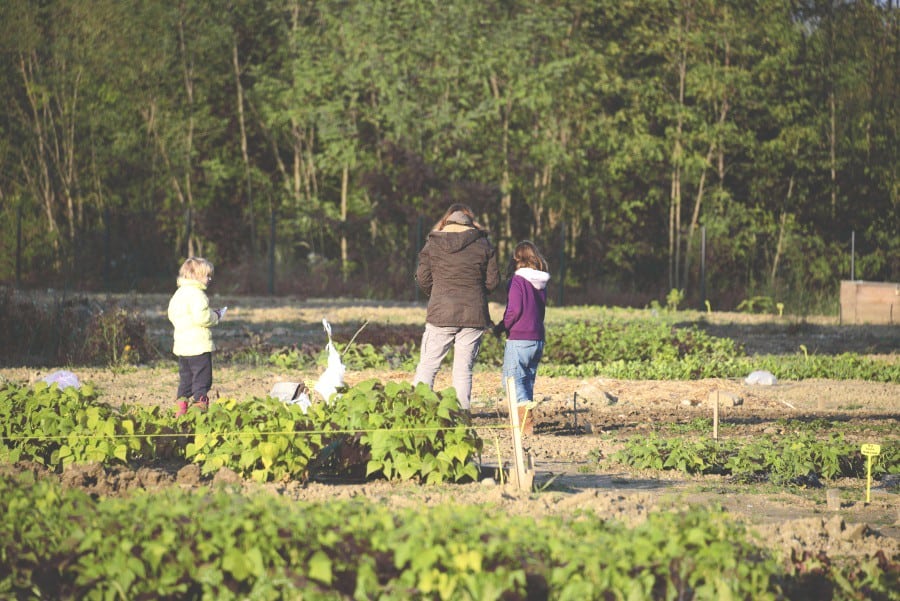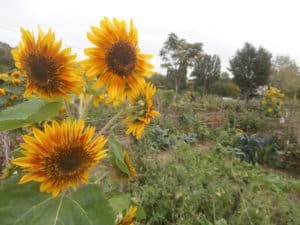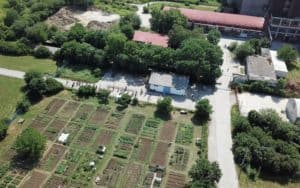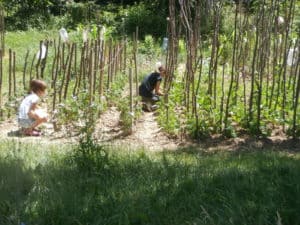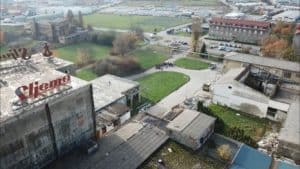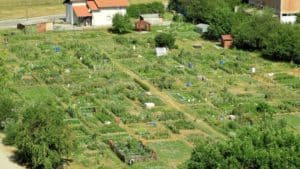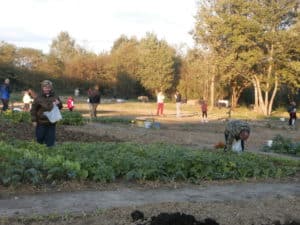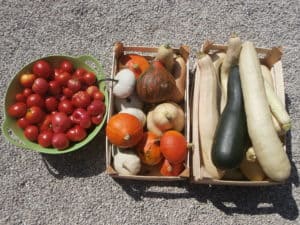
By Clara Grimes
Ten years ago, a series of plots of land around Zagreb were standing disused as they waited for redevelopment. Competition over land in Europe’s capital cities is fierce, and Zagreb is no different. So, in spring 2013, rather than leave the lots derelict, the Mayor of Zagreb opened the spaces up to the public. Applications flooded in responding to the open call offering garden lots to citizens who were not already owners or tenants of agricultural land. “The idea of the city gardens is for the citizens to ecologically produce food that they consume later” explained Iva Bedenko of Zagreb’s office for strategic planning and development. For the young and dynamic population of Zagreb’s promising Sesvete district, the gardens were an opportunity to revive the area from the social, environmental and economic repercussions of its industrial past.
Aspiring gardeners signed extendable two-year contracts with the city allowing them to use the lots for free until they were ready to be developed. The 50m2 lots were equipped with storage, compost containers and a common area for all users. Today, local people are growing tomatoes, lettuce, peppers, cucumbers and courgettes in 13 city gardens in Zagreb, with over 2100 garden plots on a surface of 22.5 hectares. As the “City Gardens” project flourished, increasing numbers of people from vulnerable and disadvantaged backgrounds showed an interest. The city council and a local NGO came up with a plan for a new kind of garden equipped for people with psychological and physical disabilities.
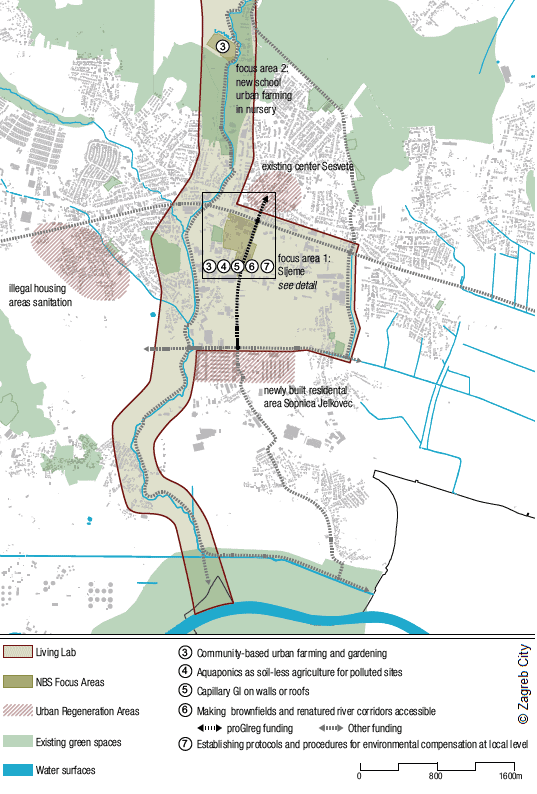
“We think that it could set a positive example of including people. There is the sad fact that very often that people with disabilities are hidden away. To bring them into society in a productive manner in this way would help society to build up empathy and to connect people of different layers of society,” said Bedenko. The self-confidence and independence-building aspects of the therapy ensure high-quality services for adults and children with disabilities and a long-term reduction in rehabilitation.
The Italian city of Turin working with Zagreb is part of a European project called proGIreg – Nature for Renewal to develop and share methods of using productive green infrastructure for urban regeneration. In Turin, the local team is collaborating with a mental health centre to work with patients who help monitor the increase in butterflies and bees in the area. The project aims to improve biodiversity, while reducing social stigma around mental health, increase confidence of the participants and encourage them to contribute to the development of their own neighbourhoods.
In order to evaluate whether the green interventions in Zagreb and Turin are benefitting public health, extensive pre-implementation monitoring activities are underway. These will include the installation of sensors and comprehensive surveys, which will help the cities make the case to expand and replicate the interventions. The city of Dortmund is also taking great strides with green urban regeneration as part of the same project, and opened a new urban garden in summer 2019. As the cities are working as part of a collaborative team, they are able to share results and insights in order to ensure productive and sustainable nature-based solutions.
Through this project and through working with ICLEI – Local Governments for Sustainability, Zagreb will share its knowledge and methods for developing the therapy with other cities around Europe and China. “We are hoping to get the best in the end,” adds Matija Vuger, Head of Section for regional and international projects at the city of Zagreb. If the pilot garden in Sesvete is successful, it will be expanded first within Zagreb: a large space in the southern part of the city has already been set aside as a larger therapeutic garden if the first garden is a success.
“It empowers people, so I think it’s really potentially a great idea – it can be a great thing to be used in Zagreb and elsewhere,” Bedenko concludes. “We are just hoping that all the other institutions that we need are as enthusiastic as we are!”
For more information and to follow the progress of the projects, visit progireg.eu.
Photo gallery

Clara Grimes
Clara Grimes is a communications officer at ICLEI — Local Governments for Sustainability. As part of her work on ICLEI’s communications and member relations team, which manages the organisation’s relationships with its member cities, she develops and leads communication strategies for local governments and international projects in the fields of nature-based solutions, resilience and climate change adaptation, organises conferences and manages websites, including an award-winning website at the 2017 Eurid web awards. She holds an MPhil in Literary Translation from Trinity College Dublin.
